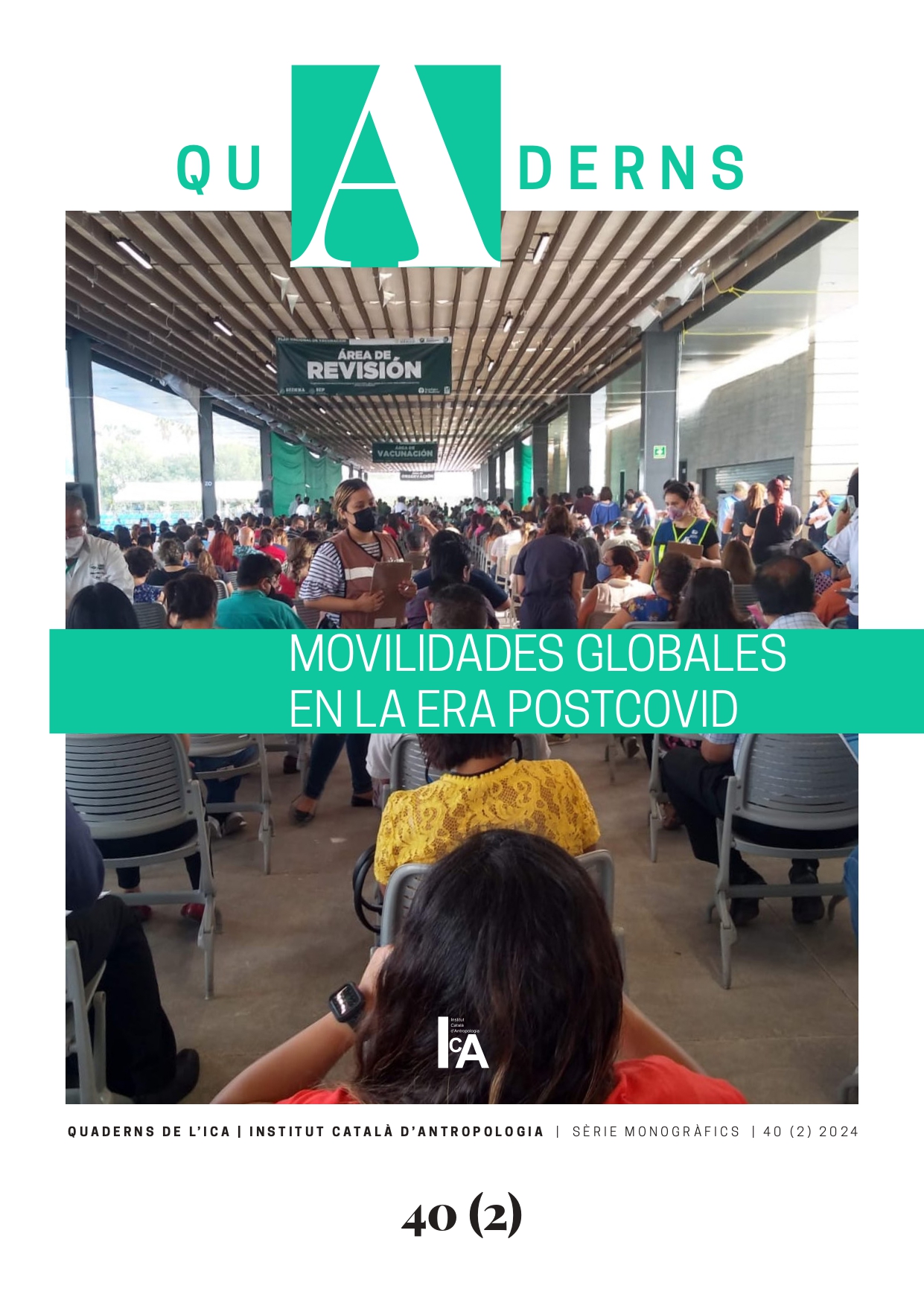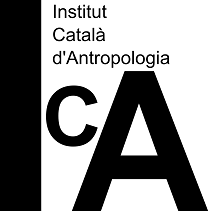“Hem perdut es concepte” Espai, Turisme, i els límits del gir de la mobilitat
DOI:
https://doi.org/10.56247/qua.519Paraules clau:
Mobilitat, immobilitat, Mallorca, turisme, gentrificació, regeneració urbanaResum
El “gir de la mobilitat” sosté que concedir prioritat analítica a l’estudi de la mobilitat és la clau per superar enfocaments metodològics basats en categories fixes i estables, considerades inviables en un món cada cop més mòbil. En aquest article, argumento que l’enfocament de la mobilitat, lluny d’assolir aquest objectiu, en realitat reafirma la divisió entre mobilitat i immobilitat, relegant la immobilitat a una posició passiva i poc teoritzada, i simplificant la complexitat de les dinàmiques de poder, la qual cosa impedeix una comprensió dialèctica dels processos contradictoris, encara que co-produïts, de mobilització i d’immobilització. A partir d’una anàlisi etnogràfica dels canvis en els patrons d’acumulació de la indústria turística i els seus impactes sobre l’espai urbà de Palma (Mallorca, Estat Espanyol), proposo un enfocament relacional que presti atenció a la dialèctica entre mobilitat i estabilitat, continuïtat i canvi.
Descàrregues
Global Statistics ℹ️
|
231
Views
|
66
Downloads
|
|
297
Total
|
|
Referències
Adey P (2006) If mobility is everything then it is nothing: Towards a relational politics of (im)mobilities. Mobilities 1(1): 75-94. DOI: https://doi.org/10.1080/17450100500489080
Ajuntament de Palma (1985) Pla General d’Ordenació Urbana de Palma. Palma: Ajuntament de Palma.
Ajuntament de Palma (1998) Pla General d’Ordenació Urbana de Palma. Palma: Ajuntament de Palma.
Allon, F (2004) Backpacker heaven. The consumption and construction of tourist spaces and landscapes in Sydney. Space & Culture 7(1): 49-63. DOI: https://doi.org/10.1177/1206331203256852
Allon F, Anderson K and Bushell R (2008) Mutant mobilities: Backpacker tourism in ‘global Sydney’. Mobilities 3(1): 73-94. DOI: https://doi.org/10.1080/17450100701797323
Amer J (2006) Turisme i Política. L’Empresariat Hoteler de Mallorca. Palma: Documenta Balear.
Augé M (1992) Non-lieux. Introduction à une Anthropologie de la Surmodernité, Paris: Seuil.
Bauman Z (1998) Globalization: Human Consequences. Cambridge: Polity Press.
Britton S (1991) Tourism, capital, and place: towards a critical geography of tourism. Environment and Planning D: Society and Space 9: 451-478. DOI: https://doi.org/10.1068/d090451
Burgess EW (1967) [1925] The growth of the city. An introduction to a research project. In RE Park and EW Burgess (eds) The City. Suggestions for Investigation of Human Behaviour in the Urban Environment (pp 47-62). Chicago: The university of Chicago Press.
Buswell RJ (1996) Tourism in the Balearic Islands. In M. Barke, J Towner and M T Newton (eds) Tourism in Spain: Critical issues (pp 309-339). Wallingford, UK: CAB International.
Castells M (1996) The information age. Economy, Society and Culture. Volume 1: The Rise of the Network Society. Cambridge, MA: Blackwell Publishers.
Clarke N (2004a) Mobility, fixity, agency: Australia’s working holiday programme. Population, Space and Place 10: 411-420. DOI: https://doi.org/10.1002/psp.347
Clarke N (2004b). Free independent travellers? British working holiday makers in Australia. Transaction of the Institute of British Geographers NS 29: 499-509. DOI: https://doi.org/10.1111/j.00202754.2004.00144.x
Clifford J (1997) Routes: Travel and Translation in the Later Twentieth Century. Cambridge, MA: Harvard University Press.
Coles T, Duval DT and Hall CM (2005a) Sobre el turismo y la movilidad en tiempos de movimiento y conjetura posdisciplinar. Política y Sociedad 42(2): 181-198.
Coles T, Duval DT and Hall CM (2005b) Tourism, mobility, and gomal communities: new approaches to theorising tourism and tourist spaces. In WG Theobald (ed) Global Tourism. Third edition (pp. 463-481). Burlington, MA: Butterworth-Heinemann. DOI: https://doi.org/10.1016/B978-0-7506-7789-9.50034-0
Cresswell T (1997) Imagining the nomad: Mobility and the postmodern primitive. In G Benko and U Strohmayer (eds) Space and Social Theory: Interpreting Modernity and Postmodernity (pp 360-379). Oxford: Blackwell.
Cresswell T (2002) Theorizing place. In G Verstraete and T Cresswell (eds) Mobilizing place, placing mobility. The Politics of Representation in a Globalized World (pp 11-32). Amsterdam: Rodopi. DOI: https://doi.org/10.1163/9789004333451_003
Cresswell T (2006a) The right to mobility: the production of mobility in the courtroom. Antipode 38(4): 735-754. DOI: https://doi.org/10.1111/j.1467-8330.2006.00474.x
Cresswell T (2006b) On the Move: Mobility in the Modern Western World. New York: Routledge.
Favell A (2001) Migration, mobility and globaloney: metaphors and rhetoric in the sociology of globalization. Global Networks 1(4): 389-398. DOI: https://doi.org/10.1111/1471-0374.00022
Franquesa J and Morell M (2005) Heritage deviations in relation to town-planning in Ciutat de Mallorca. Journal of Mediterranean Studies 15(2): 427-461.
Franquesa J (2007) Vaciar y llenar, o la lógica espacial de la neoliberalización. REIS: Revista Española de Investigaciones Sociológicas 118: 123-150. DOI: https://doi.org/10.2307/40184799
Franquesa J (2010) Sa Calatrava Mon Amour. Etnografia d’un Barri Atrapat en la Geografia del Capital. Palma: Documenta Balear.
Franquesa, J (2013a) Urbanismo Neoliberal, Negocio Inmobiliario y Vida Vecinal. El Caso de Palma. Barcelona: Icaria.
Franquesa, J (2013b) On keeping and selling: The political economy of heritage making in contemporary Spain. Current Anthropology 54(3): 346-369. DOI: https://doi.org/10.1086/670620
Freeman C (2001) Is local: global as feminine: masculine? Rethinking the gender of globalization. Signs: Journal of Women in Culture and Society 26(4): 1007-1037. DOI: https://doi.org/10.1086/495646
Frello B (2008) Towards a discursive analytics of movement: On the making and unmaking of movement as an object of knowledge. Mobilities 3(1): 25-50 DOI: https://doi.org/10.1080/17450100701797299
Giddens A (1984) The Constitution of Society: Outline of the Theory of Structuration. Berkeley: University of California Press.
Hall CM (2005) Reconsidering the geography of tourism and contemporary mobility. Geographical Research 43(2): 125-139. DOI: https://doi.org/10.1111/j.1745-5871.2005.00308.x
Hannam K, Sheller M and Urry J (2006) Editorial: Mobilities, immobilities and moorings. Mobilities 1(1): 1-22. DOI: https://doi.org/10.1080/17450100500489189
Herzfeld M (1991) A Place in History. Social and Monumental Time in a Cretan Town. Princeton, Princeton University Press. DOI: https://doi.org/10.1515/9781400843312
Ingold T (1993) Globes and spheres: the topology of environment. In K Milton (ed) Environmentalism: the View from Anthropology (pp 31-42). London: Routledge. DOI: https://doi.org/10.4324/9780203449653_chapter_2
Lefebvre H (1962) Introduction à la Modernité. Préludes. Paris : Éditions de Minuit.
Malkki L (1992) National Geographic: the rooting of peoples and the territorialisation of national identity among scholars and refugees. Cultural Anthropology 7(1): 24-44. DOI: https://doi.org/10.1525/can.1992.7.1.02a00030
Marx K (1973) Grundrisse. Foundations of the Critique of Political Economy. London: Penguin Books.
Morgan M (1991) Dressing up to survive. Marketing Majorca anew. Tourism Management, 11: 15-20. DOI: https://doi.org/10.1016/0261-5177(91)90025-O
Nowicka M (2006) Mobility, space and social structuration in the second modernity and beyond. Mobilities 1(3): 411-435. DOI: https://doi.org/10.1080/17450100600902388
Oliver G and Garcia N (1977) Ciudad y Sociedad Capitalista. Bilbao: Zero.
Robledo MA and Batle J (2002) Re-planning for tourism in a mature destination; a note on Majorca. In R Voase (ed) Tourism in Western Europe. A Collection of Case Histories (pp 85-94). Wallingford: CAB International Publishing. DOI: https://doi.org/10.1079/9780851995724.0085
Ruiz Viñals C (2000) L’Urbanisme de la Ciutat de Palma. Palma: El Far de les Crestes.
Rullan O (1997) De la Cova de Canet al tercer ‘boom’ turístic. Una primera aproximació a la geografia històrica de Mallorca. In Govern de les Illes Balears (ed) El Medi Ambient a les Illes Balears. Qui és Qui? (pp 171-213). Palma, Fundació “Sa Nostra”.
Rullan O (1999) Crecimiento y política territorial en las Islas Baleares. Estudio Geográficos LX(236): 403-442. DOI: https://doi.org/10.3989/egeogr.1999.i236.570
Sager T (2006) Freedom as mobility: Implications of the distinction between actual and potential travelling. Mobilities 1(3): 465-488. DOI: https://doi.org/10.1080/17450100600902420
Sheller M and Urry J (2003) Mobile transformations of ‘public’ and ‘private’ life. Theory, Culture & Society 20(3): 107-125. DOI: https://doi.org/10.1177/02632764030203007
Sheller M and Urry J (2006) The new mobilities paradigm. Environment and Planning A 38: 207-226. DOI: https://doi.org/10.1068/a37268
Smith N (1990). Uneven Development: Nature, Capital and the Production of Space. London: Blackwell.
Spring, U. (2006). The linear city: Touring Vienna in the nineteenth century. In M Sheller and J Urry (eds) Mobile Technologies of the City (pp 21-43). Abingdon: Routledge.
Szerszynski B and Urry J (2006) Visuality, mobility and the cosmopolitan: inhabiting the world from afar. The British Journal of Sociology 57(1): 113-131. DOI: https://doi.org/10.1111/j.1468-4446.2006.00096.x
Tsing A (1998) The global situation. Cultural Anthropology 15(3): 327-360. DOI: https://doi.org/10.1525/can.2000.15.3.327
Urry J (2000) Sociology Beyond Societies. London: Routledge.
Urry J (2002) The Tourist Gaze (2nd edn). London: Sage. DOI: https://doi.org/10.1177/146879760200200207
Verstraete G (2003) Heading for Europe: Tourism and the global itinerary of an idea. In G Verstraete and T Cresswell (eds) Mobilizing Place, Placing Mobility. The Politics of Representation in a Globalized World (pp 33-52). Amsterdam: Rodopi. DOI: https://doi.org/10.1163/9789004333451_004
Vives Miró S (2008) Les Implicacions Socials i Ecològiques de la Lògica Immobiliària. L’exemple de Palma. Unpublished M.Phil. thesis: Universitat de les Illes Balears.
Descàrregues
Publicades
Com citar
Número
Secció
Llicència
Drets d'autor (c) 2025 Quaderns de l'Institut Català d'Antropologia

Aquesta obra està sota una llicència internacional Creative Commons Reconeixement-NoComercial-CompartirIgual 4.0.
(CC BY-NC-SA 4.0)




